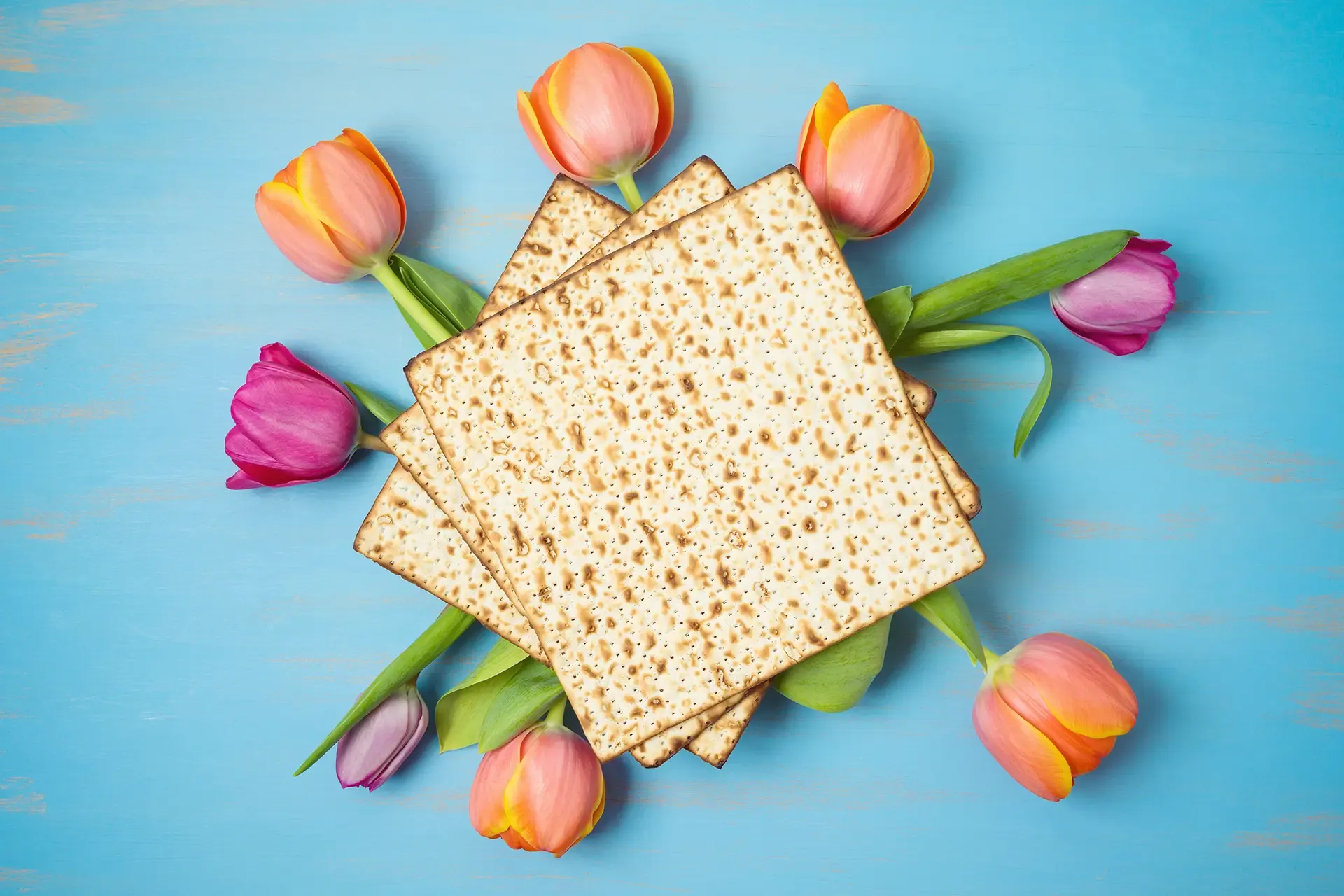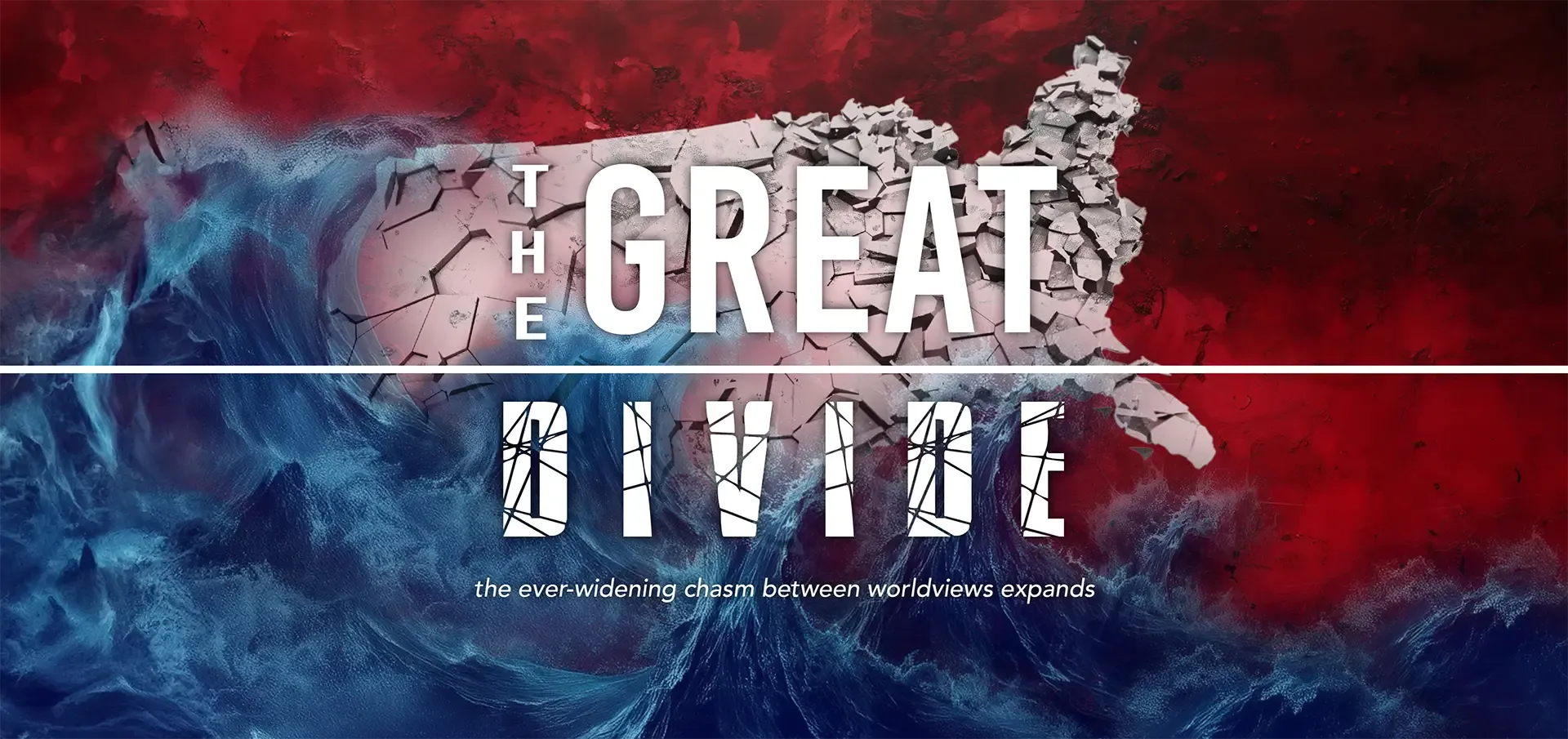How the Feasts of Israel Point to Jesus

An excerpt from Jewish Roots of Christianity
Signposts are integral to navigating life in our modern world, as they support our quest to get from point A to point B. Sometimes those signposts are directional. Other times they may be mile markers.
In any case, without signposts our efforts to understand where we are in relation to where we are going will be greatly hampered, and our ability to reach our destination will be diminished, if not sabotaged completely. With the support of signposts, we can arrive at our intended destination and engage the purpose for which that destination was designed—be it business, pleasure, or otherwise.
As we ponder our journey down redemption road through our biblical survey of redemptive history, we come to the feasts of Israel. These feasts of Israel, germane to ancient Israel historically and to the Jewish people today, also have profound significance to mankind in general and to the church specifically.
The feasts of Israel are in one sense, spiritual signposts that say, “This way to Messiah.” As we embark on this brief journey through the feasts of Israel, we will discover that they powerfully point to the person and work of Jesus. The feasts of Israel find their fulfillment in Jesus and the ultimate spiritual destination of salvation.
A study of them not only helps us better understand God’s dealings with Israel but it helps us better understand God’s plan of salvation. As Romans 10:9-10 declares, “that if you confess with your mouth the Lord Jesus and believe in your heart that God has raised Him from the dead, you will be saved. For with the heart one believes unto righteousness, and with the mouth confession is made unto salvation.”
The feasts point to Jesus, who has made the way of salvation possible. As He proclaimed about Himself in John 14:6, “…I am the way, the truth, and the life. No one comes to the Father except through Me.”
God’s Appointed Times
If you’re a believer in Jesus Christ, you’re familiar with the concept of individual quiet times with the Lord. The Lord gave ancient Israel what we might call corporate quiet times—God’s appointed times.
Our study of the feasts of Israel begins in Leviticus 23:1-2: “And the Lord spoke to Moses, saying, “Speak to the children of Israel, and say to them: ‘The feasts of the Lord, which you shall proclaim to be holy convocations, these are My feasts.’”
The Hebrew word used here for feasts is the word moed, which means “appointed time,” a time for people to stop everything and focus their attention on God—who He is and what He has done for them.
As the church, we have times of corporate worship, like Sunday morning, and as individual Christians we have “quiet times” with the Lord. In ancient Israel these feasts were not feasts in the modern sense of banquets and celebrations, but rather were based on the altar of sacrifice and God’s covenant relationship with Israel.
The first of these appointed times is the Sabbath, a weekly reminder of God’s creation of the world and of His covenant with Israel. As Leviticus 23:3 states, “‘Six days shall work be done, but the seventh day is a Sabbath of solemn rest, a holy convocation. You shall do no work on it; it is the Sabbath of the Lord in all your dwellings.”
Because of the limited scope of our study, we won’t delve into the Sabbath. With Christians having varied views and many questions surrounding the Sabbath, I will recommend the book Christ in the Sabbath by Rich Robinson. It is an excellent resource on the Sabbath and how it relates to the Christian today.
Following the Sabbath, the other seven annual feasts fall naturally into two distinct groups. The first four of these occur in the spring and are all related to the Passover. The last three all take place during the seventh month of the Hebrew calendar, the sacred month of Tishri, and are known as the fall feasts of Israel.
In this Chapter, we’ll focus on the feasts of Israel that occur in the spring—Passover, Unleavened Bread, and Shavuot (Pentecost). In Chapter 9, we’ll turn our attention to the fall feasts of Israel—Rosh Hashanah (also known as the Feasts of Trumpets), Yom Kippur, the Day of Atonement, and Sukkot (also called the Feast of Tabernacles or Booths).
The ancient Hebrews observed a twelve-month lunar calendar based on Psalm 104:19, where the Scripture states, “He appointed the moon for the seasons; The sun knows it’s going down.” Ancient Israel had elaborate protocols in place to precisely determine the new moon so that the appointed times or feasts could be observed on the correct days.
The first appointed time on the annual religious calendar was Passover.
Passover
In their tremendous book, Christ in the Passover, Ceil and Moishe Rosen describe Passover as “God’s Object Lesson.”
Leviticus 23:5-8 introduces for us Passover and the Feast of Unleavened Bread:
“On the fourteenth day of the first month at twilight is the Lord’s Passover. And on the fifteenth day of the same month is the Feast of Unleavened Bread to the Lord; seven days you must eat unleavened bread. On the first day you shall have a holy convocation; you shall do no customary work on it. But you shall offer an offering made by fire to the Lord for seven days. The seventh day shall be a holy convocation; you shall do no customary work on it.”
The Passover Lamb
In Exodus 12:1-20 God provides more specific Passover details. Verses 3-7 detail the sacrifice of the Passover Lamb:
Speak to all the congregation of Israel, saying: “On the tenth of this month every man shall take for himself a lamb, according to the house of his father, a lamb for a household. And if the household is too small for the lamb, let him and his neighbor next to his house take it according to the number of the persons; according to each man’s need you shall make your count for the lamb. Your lamb shall be without blemish, a male of the first year. You may take it from the sheep or from the goats. Now you shall keep it until the fourteenth day of the same month. Then the whole assembly of the congregation of Israel shall kill it at twilight. And they shall take some of the blood and put it on the two doorposts and on the lintel of the houses where they eat it.”
The innocent Passover lamb foreshadowed the One who would arrive centuries later to be God’s final means of redemption and atonement. The Fulfillment in Jesus. Some people may ask, “What’s Jesus have to do with Passover? Passover is Jewish.” Well, so was Jesus. He was Jewish and celebrated Passover every year while He lived on this Earth as a man, but His connection is so much more! As John declared in John 1:29, “… Behold! The Lamb of God who takes away the sin of the world!”
Just as the Passover lamb was marked for death, so was Jesus. As Isaiah 53:7 states about the sacrifice of Messiah, “He was led as a lamb to the slaughter.”
Additionally, note that the Passover lamb was “without blemish.” First Peter 1:18–19 states that the believers in Jesus are “…not redeemed with corruptible things, like silver or gold, from your aimless conduct received by tradition from your fathers, but with the precious blood of Christ, as of a lamb without blemish and without spot.
Covered by the blood. The Israelites had to place the blood on the doorposts of their homes by faith, so when the angel of death came, he would “pass over” those covered by the blood,
“For I will pass through the land of Egypt on that night, and will strike all the firstborn in the land of Egypt, both man and beast; and against all the gods of Egypt I will execute judgment: I am the Lord. Now the blood shall be a sign for you on the houses where you are. And when I see the blood, I will pass over you; and the plague shall not be on you to destroy you when I strike the land of Egypt.” —Exodus 12:12–13
Just as the ancient Israelites had to apply in faith the blood of the lamb to the doorposts of their homes to escape physical death, so human beings must place, by faith, the blood of the Messiah Jesus to the doorposts of our hearts to escape spiritual death, which is eternal separation from God in hell. What a mighty act of redemption the Lord has accomplished!
The Unleavened Bread
Unleavened bread was an important component of the Passover meal, as God commanded the Israelites to eat the Passover lamb with “unleavened bread” (Exodus 12:8).
They ate the unleavened bread in haste, because they would be leaving Egypt quickly during the exodus, but there’s more.
Leaven in the scriptures is usually a symbol of sin, therefore the putting away of all leaven would have been a picture of the cleansing from sin. Passover and the Feast of Unleavened Bread (seven days following Passover) would be an everlasting memorial given to the Israelites.
As Exodus 12:14-15 declared, “So this day shall be to you a memorial; and you shall keep it as a feast to the Lord throughout your generations. You shall keep it as a feast by an everlasting ordinance.”
The Israelites were to be consecrated, set apart, unto the Lord. The unleavened bread at Passover in the Passover observance for gen- erations going forward would be a powerful reminder.
Unleavened bread in a spiritual sense is a picture of a sinless nature. Jesus, the Bread of Life, was perfect, sinless. Just as the unleavened bread pictured being freed from physical bondage in Egypt for the Israelites, so God’s people, the church, are to be pure, “unleavened,” for we have been delivered from the spiritual bondage of sin through the sacrifice of the perfect Lamb of God, Jesus.
As the Apostle Paul noted, in 1 Corinthians 5:6-7: “Do you not know that a little leaven leavens the whole lump? Therefore purge out the old leaven, that you may be a new lump, since you truly are unleavened. For indeed Christ, our Passover, was sacrificed for us.”
As His people, may we praise God each and every day for the provision of our Passover Lamb, Jesus, our Savior and Lord!
Chag Pesach Sameach!






